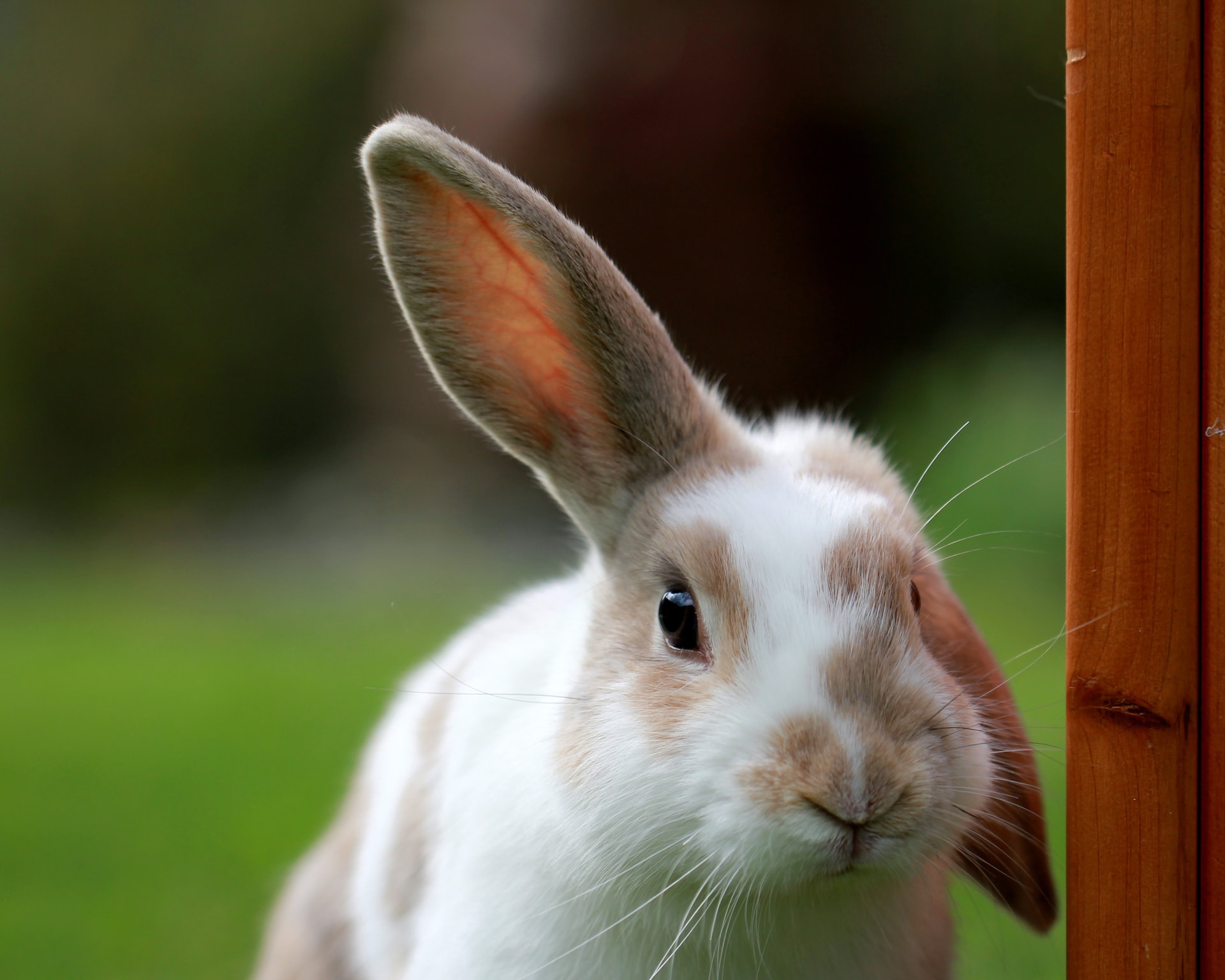FdSc Applied Animal Behaviour, Welfare & Conservation (with Foundation Year)

Course details
UCAS Code
85D4
Year of entry
2024, 2025
Duration
3 YRS (FT)
UCAS Tariff
48-72
Institution Code
G53
Location
Northop, Wrexham
Why choose? this course?
If you’re passionate about animals there’s never been a better time to prepare for your dream career with this course which covers animal behaviour, ethics and welfare. This course is part of a subject area rated 1st in the UK for student satisfaction in the Complete University Guide 2023.
You will:
- *study in a subject area rated 1st in the UK for student satisfaction in the Agriculture & Forestry subject league tables, Complete University Guide 2023
- study zoological science, animal husbandry, animal learning and training, and survey skills for conservation
- take part in work placements to develop practical skills and demonstrate the knowledge and skills they have gained
- have access to a veterinary clinical suite, bespoke training area and Cruft’s standard agility course
- enjoy off-site visits to animal charities, wildlife centres and other industry-related venues
You can also choose to study this course without a foundation year FdSc Applied Animal Behaviour, Welfare and Conservation UCAS code: D300
Key course features
- Includes foundation year to prepare you for further years of study
- Develop high-level knowledge of animal behaviour, husbandry, and training
- Urban and rural study environments - split your study time between the Northop campus set in stunning North Wales countryside and our Wrexham campus, on the edge of the largest town in North East Wales
- Excellent links with industry and opportunities to secure work placements which will enhance your career prospects. Gain experience in a range of practical situations from zoo work to training assistance dogs
- Industry-active staff with specialist academic and practical skills, and experience of working with a range of domestic and wild animals
- Top up to a full BSc (Hons) degree in Animal Studies once you’ve completed the foundation degree (further one year of study needed)
What you will study
YEAR 1 (FOUNDATION YEAR)
The Foundation Year is an integrated year where you will study core modules with a broad range of students from across the Faculty of Social and Life Sciences, giving you access to different perspectives and networking opportunities.
The modules will equip you with key skills needed for Higher Education and beyond. They will give you the chance to explore your subject area and available careers, allowing you to adapt your reading and assessments to be relevant to your degree pathway.
Alongside teaching from the broader faculty staff, you will be able to meet with staff and other students from your main degree pathway and get involved with events and opportunities that they are running.
- Study Skills for Success (core) will give you a solid foundation in academic conventions and time management skills to help you to progress through your degree.
- Resilience in Higher Education and Beyond (Core) Personal development and resilience are as important as academic skills in the accomplishment on your journey towards graduation, and this exciting new module will equip you with the attributes needed for this.
- A Day in the Life (core) This module allows you to explore the potential career options open to you on completion of you chosen degree. You will be exploring the professions linked to your degree and start preparing your graduate portfolio for employers.
- Life and Work in the Welsh Context (core) will give you the opportunity to explore your subject area and/or desired career in relation to living and working in today’s Wales.
The suite of optional modules are designed to enhance your skills base in relation to your career development. Your personal tutor from your degree will meet with you to help you decide which one of the available optional modules would be most suitable for you. The optional modules are:
- Welsh for First Time Learners provides an introduction to the Welsh language for those taking their first steps Numeracy where your degree requires a competent level of numeracy, you may be advised to choose this option.
- Professional Communication in the Workplace in this module, you will begin to develop the skills and aptitude necessary to communicate effectively in a professional context.
- Maths and Experimental Design if your degree pathway requires an understanding of numeracy and sciences, then this module is designed to provide the opportunity to achieve that.
There are a variety of assessments across the foundation year – presentations, portfolios, electronic scrapbooking, and learning logs are just some.
YEAR 2 (LEVEL 4)
In this year you are introduced to the concepts of biology, animal behaviour and welfare that you will use throughout the rest of your course. Laboratory skills are essential to science and you will receive a foundation in these. You will develop animal husbandry skills and knowledge. You will also undertake a period of work experience so that you become familiar with the animal sector and develop practical skills necessary for the workplace.
MODULES
- Biological Concepts: This module aims to develop students’ understanding of the key principles of animal biology, biological pathogens, laboratory skills and anatomical structure and function. The origins and classification of life will be covered together with cell and tissue structure and function. The main organs and systems of the animals’ bodies will also be introduced.
- Husbandry: This module aims to develop students’ knowledge and understanding of animal husbandry and provides the opportunity to gain practical experience with a wide range of animal species. Lectures, practical sessions and visits to local animal establishments will enable students to consolidate their practical experiences with appropriate husbandry theories. Use will be made of case study materials and guest speakers.
- Ethology and Anthrozoology: This module enables students to investigate the biological basis of natural behaviour, and evaluate the relationship between natural behaviour and captive animal welfare. Students will carry out a practical study of a captive animal and discuss the link between animal welfare and the captive environment. Students will also examine a range of human and animal interrelationships and the costs and benefits associated with these interactions.
- Ethics and Welfare: This module aims to investigate contemporary issues within animal welfare and to introduce students to a range of relevant ethical issues. A variety of contemporary welfare issues will be critiqued during the module. Students will have the opportunity to deliver their own workshops and seminars.
- Academic and Personal Development: This module aims to familiarise learners with higher education culture, to build on key skills (logical, mathematical and critical) necessary for successful study in higher education.
- Professional Practice: A range of career opportunities and associated challenges with gaining employment within the animal sector will be studied in this module. Students will also have the opportunity to develop their skills, knowledge and competencies within a workplace setting of their choice.
YEAR 3 (LEVEL 5)
In the second year you will build upon knowledge gained in your first year and develop your understanding of a variety of topics in more detail. You will learn about anatomy and physiology, survey skills for conservation, learning and training. You will also learn research skills and report writing within research methodologies. In addition the Applied Practice module will allow you to gain further hands on experience in the workplace.
MODULES
- Research Methodologies: This module will enable you to understand the role of relevant research within the field of animal studies. In addition it will provide you with sufficient capability to plan a research project in your field of study, to define the research parameters, assess appropriate methodologies, and present your findings. You will learn how to examine and assess the appropriateness of different research methodologies to various research briefs and become aware of ethical and political issues in social research.
- Applied practice: This module will enable you to gain further work based learning and act as a consultant researching and critically assessing issues within the organisation in conjunction with an employer. You will have the opportunity to make recommendations for development based on the experience you have gained.
- Anatomy and Physiology: This module aims to equip students with a working knowledge of topographical and skeletal anatomy and to enable them to identify anatomical landmarks. You will learn to relate anatomical structure to function and further develop your practical laboratory skills.
- Learning and Training: In this module you will develop a working knowledge of the principles of learning theory as applied to animals. You will link animal learning to training practices and will write and implement your own plan to train an animal to complete a task. You will also evaluate traditional and contemporary training methods and associated equipment.
- Survey Skills for Conservation: The Survey Skills for Conservation module will equip students with the skills necessary to carry out a range of surveys for animal species. Students will identify and survey a range of animal species, and analyse and interpret data collected. The development of these skills will be achieved through practical field work, such as during visits to nature reserves and local woodlands.
The information listed in this section is an overview of the academic content of the programme that will take the form of either core or option modules. Modules are designated as core or option in accordance with professional body requirements and internal academic framework review, so may be subject to change.
Entry requirements & applying
UCAS code: 85D4
Applications are welcomed from candidates who do not possess the standard qualifications but who can demonstrate their capacity to pursue the course successfully.
Entrance for these candidates is dependent on an assessment of past experience, a successful interview, references and diagnostic assessment to determine suitability for the course. Enthusiasm and commitment are essential.
Teaching & Assessment
The course comprises a range of modules that are assessed by theoretical and in some cases practical coursework. Types of assessment include, portfolios, posters, laboratory reports, essays, presentations, seminars, practical exams, written exams and reflective diaries.
TEACHING AND LEARNING
This programme includes a variety of learning and teaching methods in the class, practical settings and sessions delivered within the workplace. These include:
- Lectures and demonstrations
- Seminars and workshops
- Tutorials
- Group and project work
- Reflective reports
- External speakers
- Educational visits and study days
- Tutor and students led sessions
- Critical appraisal
- Portfolio development
- Work placements
Wrexham University is committed to supporting our students to maximise their academic potential.
We offer workshops and support sessions in areas such as academic writing, effective note-making and preparing for assignments. Students can book appointments with academic skills tutors dedicated to helping deal with the practicalities of university work. Our student support section has more information on the help available.
In terms of particular needs, the University’s Inclusion Services can provide appropriate guidance and support should any students require reasonable adjustments to be made because of a recognised prevailing disability, medical condition, or specific learning difference.
Career prospects
The animal care industry is now worth £1 billion to the UK economy with 13,000 businesses and numerous animal charities, zoos, conservation organisations, wildlife parks and animal visitor attractions.
Career opportunities in the animal care industry are wide-ranging. You could be working in animal welfare organisations, conservation, zoos and wildlife parks, veterinary practices, animal feed companies and veterinary or pharmaceutical companies.
Further study opportunities are also available, such as progression to teaching qualifications or postgraduate level research.
Our Careers and Employability service is there to help you make decisions and plan the next steps towards a bright future. From finding work or further study to working out your interests, skills and aspirations, they can provide you with the expert information, advice and guidance you need.
Fees & funding
You do not have to pay your tuition fees upfront.
The fees you pay and the support available will depend on a number of different factors. Full information can be found on our fees & finance pages. You will also find information about what your fees include in the fee FAQs.
All fees are subject to any changes in government policy, view our undergraduate fees.
Programme specification
Accommodation
If you’re looking for a place to stay while you study then take a look at our accommodation pages to get more information on your options, including our on-campus halls of residence Wrexham Village.
Subject to re-validation
As part of its continuous quality assurance and enhancement, the University reviews its courses on a regular basis to ensure that they reflect the needs of students and employers. Periodic review of the existing programmes is required every five years and major changes may be made to the programmes during the re-validation process. As soon as the programmes are re-validated the details of the course will be confirmed. The majority of courses that are still ‘subject to re-validation’ are approved by the validation process; however, this is not guaranteed and should the course not go ahead as planned, or be significantly amended, you will be informed by the university and assistance will be provided to those who have been offered a place to find a suitable alternative course either at Wrexham University or at another provider.




